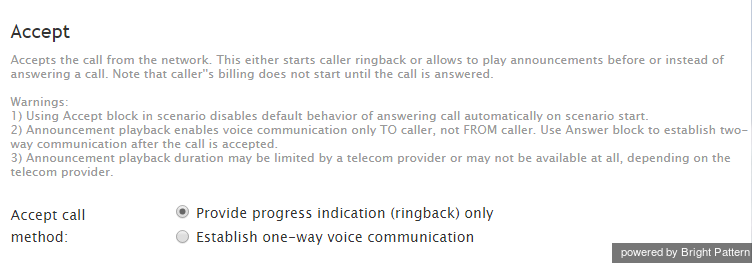Accept
The Accept scenario block accepts the call from the network. This block either starts the ring back tone or allows the system to play early media (i.e., announcements) before or instead of answering a call. Early media denotes the capability to play media (audio or telephony) before a two-way voice session has been established. For telephony provisioning, establishment of media in the backwards direction may be desirable so that tones and announcements can be played prior to providing answer supervision. Note that call billing typically does not start until the call is answered or until a predefined carrier time is surpassed (in some instances this might be as high as 120 seconds, however, typically closer to 6 seconds).
Important:
- Using this block in a scenario disables the default behavior of answering a call automatically on scenario start.
- Announcement playback enables voice communication only to the caller, not from the caller. An Answer block will be required to establish two-way communication after the call is accepted.
- Announcement playback delay duration may be limited or not available at all, depending on the telecom carrier.
Settings
Provide progress indication (ringback) only
This setting plays a ring back tone to the caller. It is typically considered if the carrier response is fast enough that customers hear no ring back tone.
Establish one-way voice communication
This setting provides ability to play announcements or prompts to the caller.

